Sinus Infections: Causes, Symptoms & Natural Support Strategies
Millions of Americans suffer from a sinus infection (or sinusitis) at least once a year. They occur when the tissue that lines the sinuses becomes swollen and inflamed. The swelling and inflammation block the sinuses, trapping mucus and air. The increase of trapped mucus can cause infection.
Sinus infections can be painful and difficult to cure. Most people rely on antibiotics and over-the-counter decongestants to treat their sinus infections. If sinus infections are caused by a virus, antibiotics are not effective and can only harm the person. In this article, I will go over a number of helpful natural strategies to support your immune system and help your body heal.
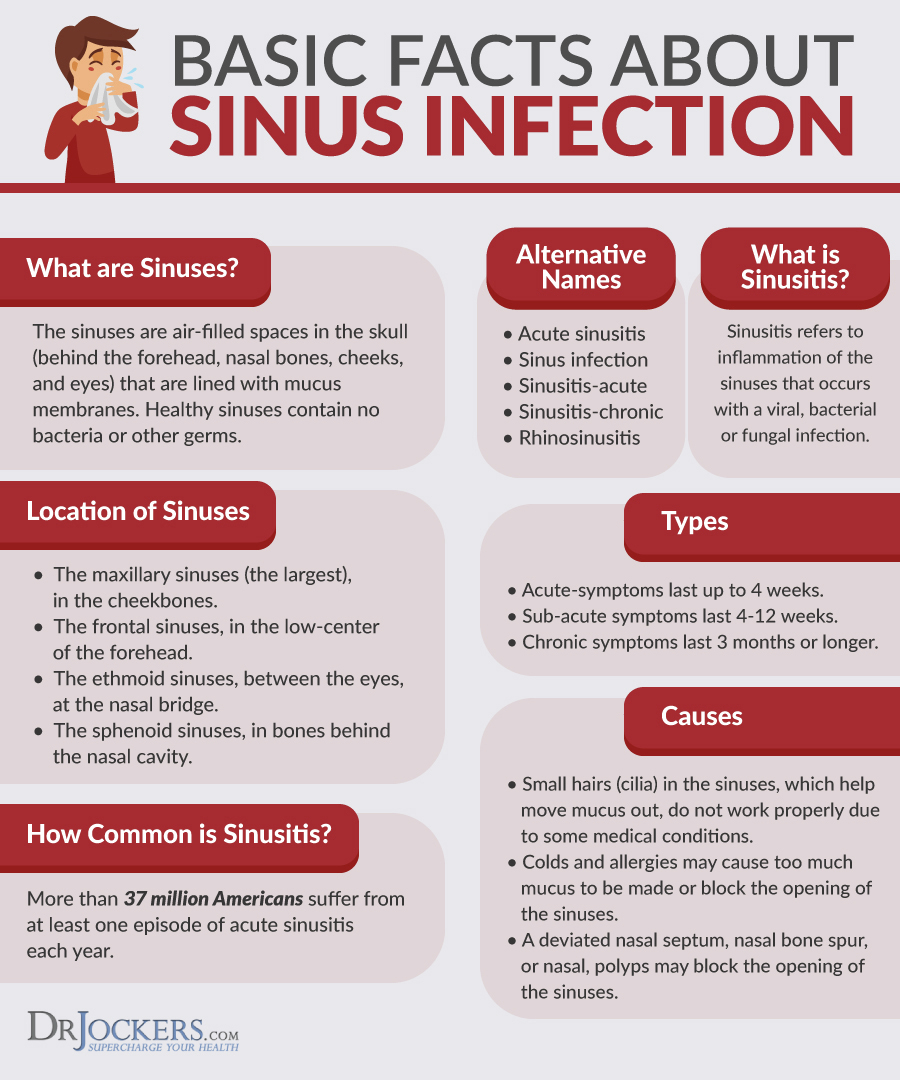
The Facts about Sinus Infections
The sinuses are a group of air-filled, connected spaces in the bones of the head. They are on the forehead and cheeks as well as between the eyes and nose.
Normal sinuses are lined with a thin layer of mucus that traps dust, germs, and other particles in the air. The sinus walls have tiny hair like structures called cilia, which sweep the mucus out of your sinuses and into your nose.
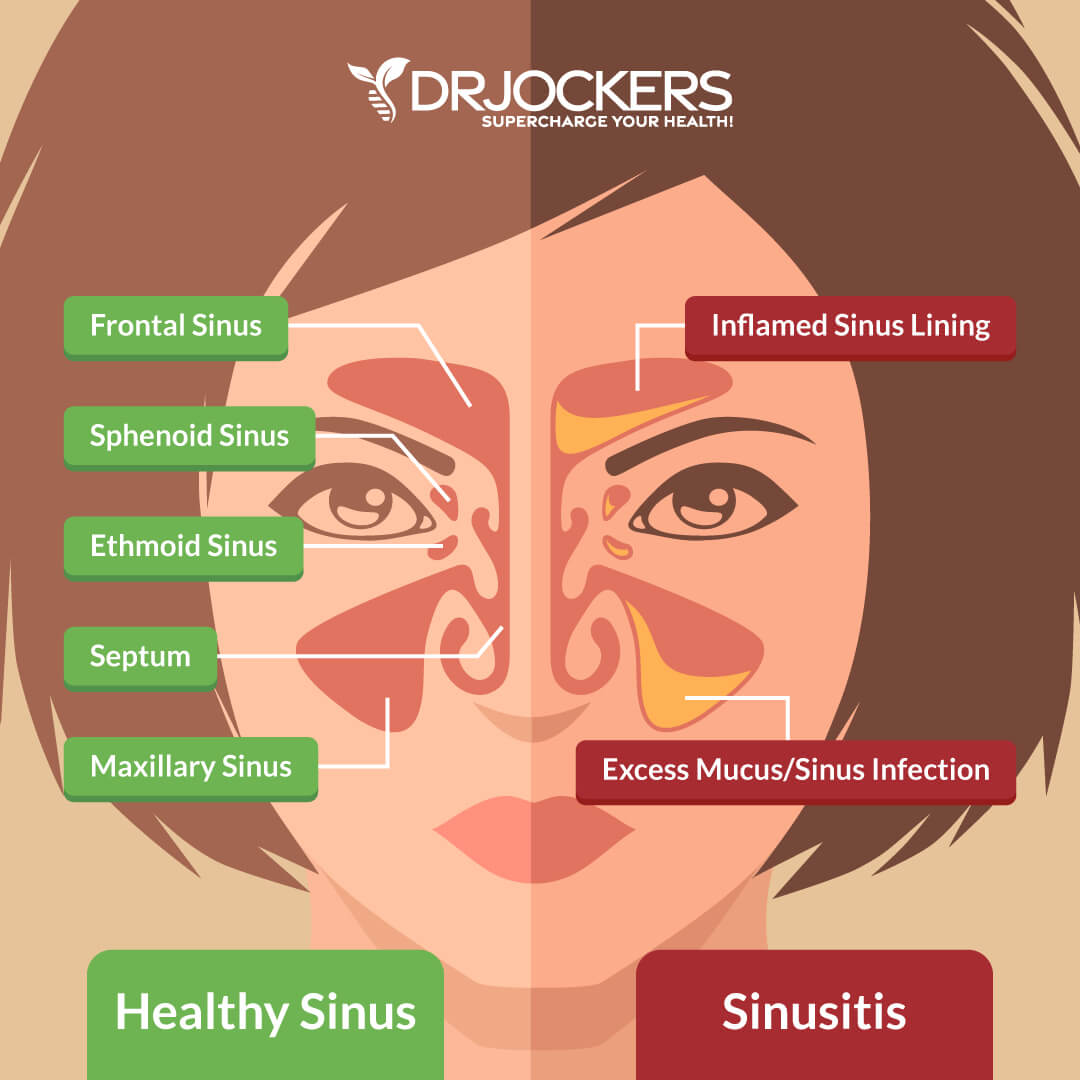
Causes of Sinus Infections
A sinus infection occurs when the sinuses become inflamed and infected. When the sinus lining swells, mucus is blocked from draining, and air cannot flow. Viruses, bacteria, and fungi can then grow in the nasal cavities, causing an infection.
Several conditions place individuals at greater risk for sinus infections. These conditions include people with a weakened immune system and people who have allergies, asthma, or structural blockages in the nose or sinuses.
Risk of contracting a sinus infection can also depend on the quality of the air you are breathing, whether you are at your home, a commercial building, outside in a city, at the airport, etc., where different pollutants or microbes can reside.
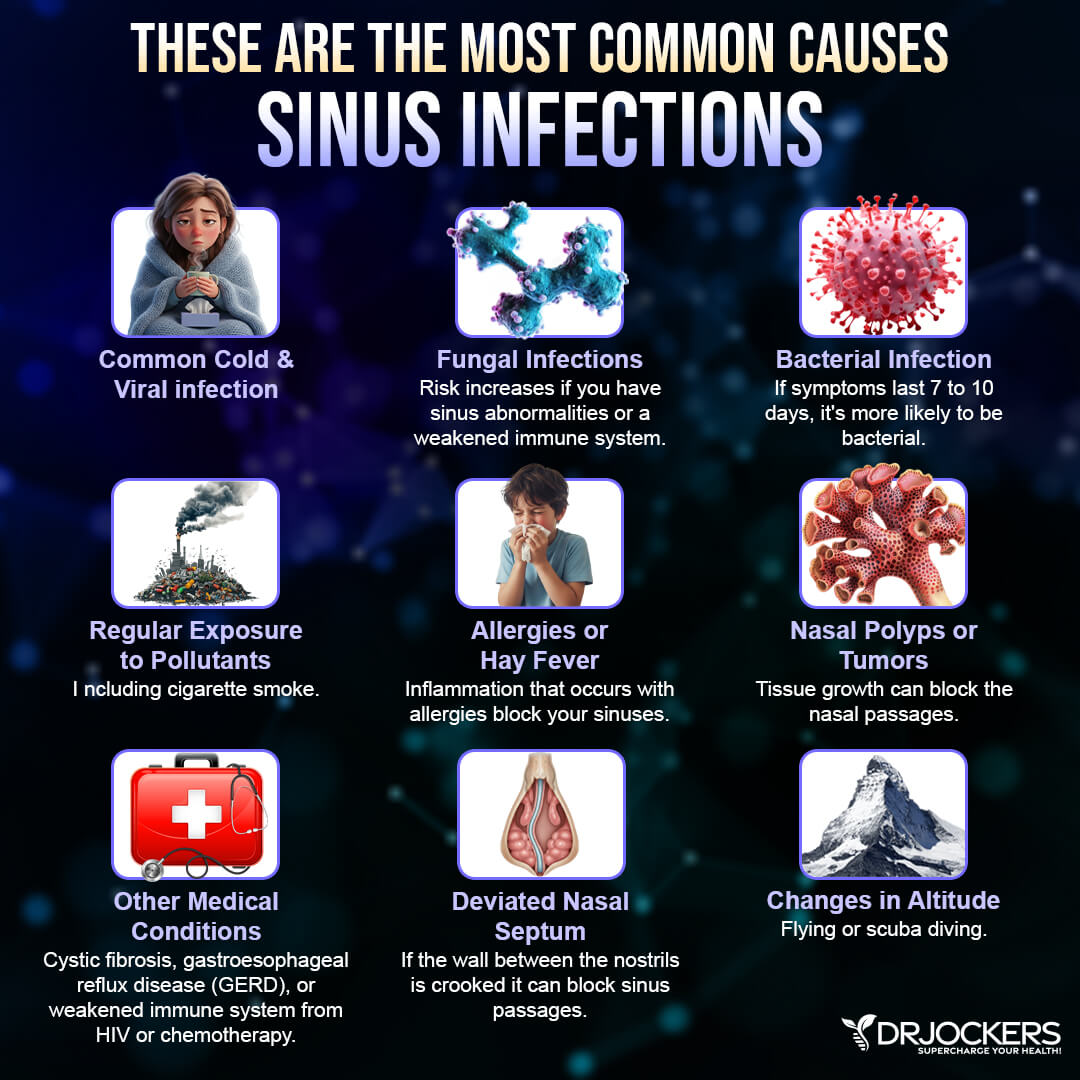
Types of Sinus Infections
Sinus infections are classified into different types depending on the onset and duration of symptoms. An acute sinus infection is temporary and usually begins with a common cold or seasonal allergies. Acute sinusitis usually lasts fewer than 4 weeks. Subacute sinus infections last 4 to 12 weeks.
Chronic sinusitis is an inflammatory disease that lasts longer than 12 weeks despite treatment (1). Recurrent sinusitis occurs several times a year.
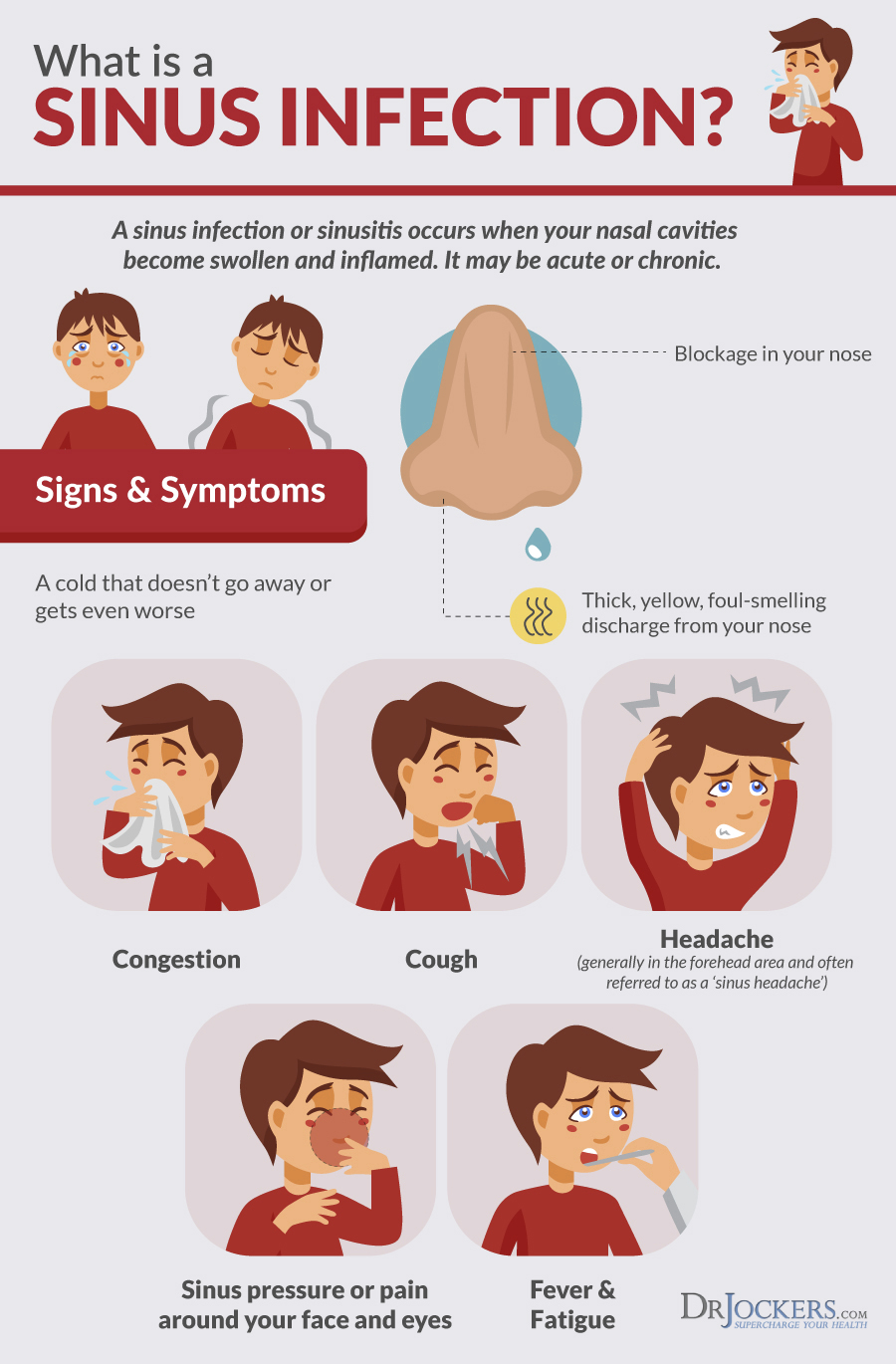
Sinus Infections: Signs and Symptoms
Signs you have a sinus infection include blocked nasal passages, post-nasal drip, congestion, and thick discharge from the nose. Other signs include having a cold that lingers or gets worse, a cough, a headache in the forehead area, sinus pressure around the face and eyes, fever, bad breath, and sore throat.
The most telling of these symptoms is the presence of thick yellow, green, or brown discharge from the nose in conjunction with the others mentioned above.
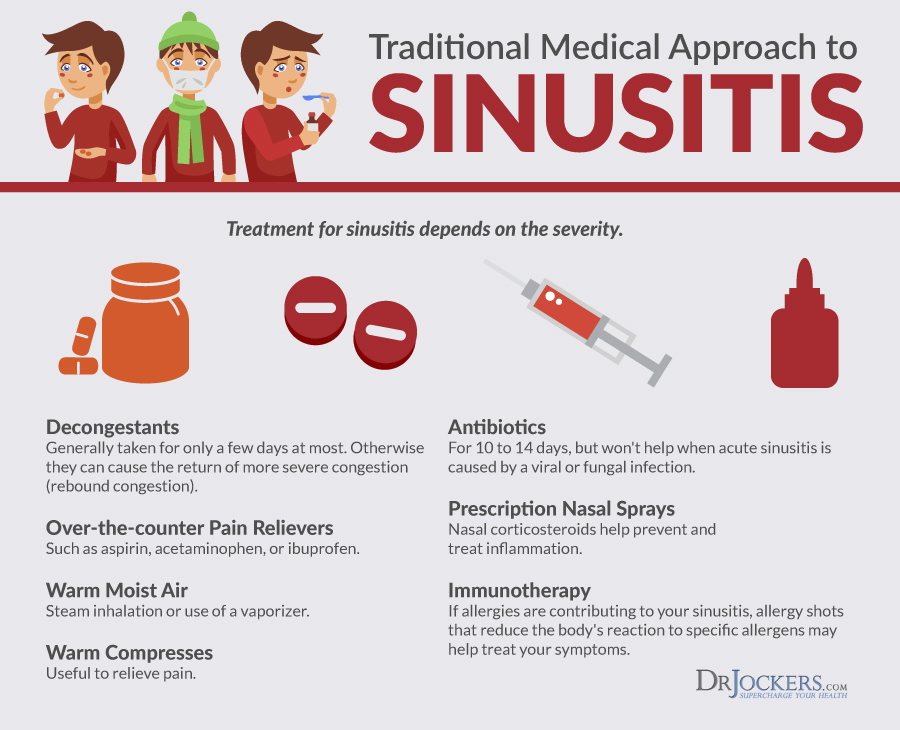
8 Strategies to Support Immune & Nasal Health
There are many natural ways to support immune and nasal health, such as diet, supplements, teas, nasal and mouth sprays, and essential oils. It is important to know that these strategies are not FDA approved to prevent, mitigate, treat, or cure sinus infections, but they can help the body to function better.
These are all strategies that I personally practice if I ever have a sinus infection (which is rare!), and they really help! I recommend my clients practice some of these on a regular basis and others when they feel more susceptible to getting ill. If you begin to have early symptoms, it is a great time to immediately dial in these support strategies.
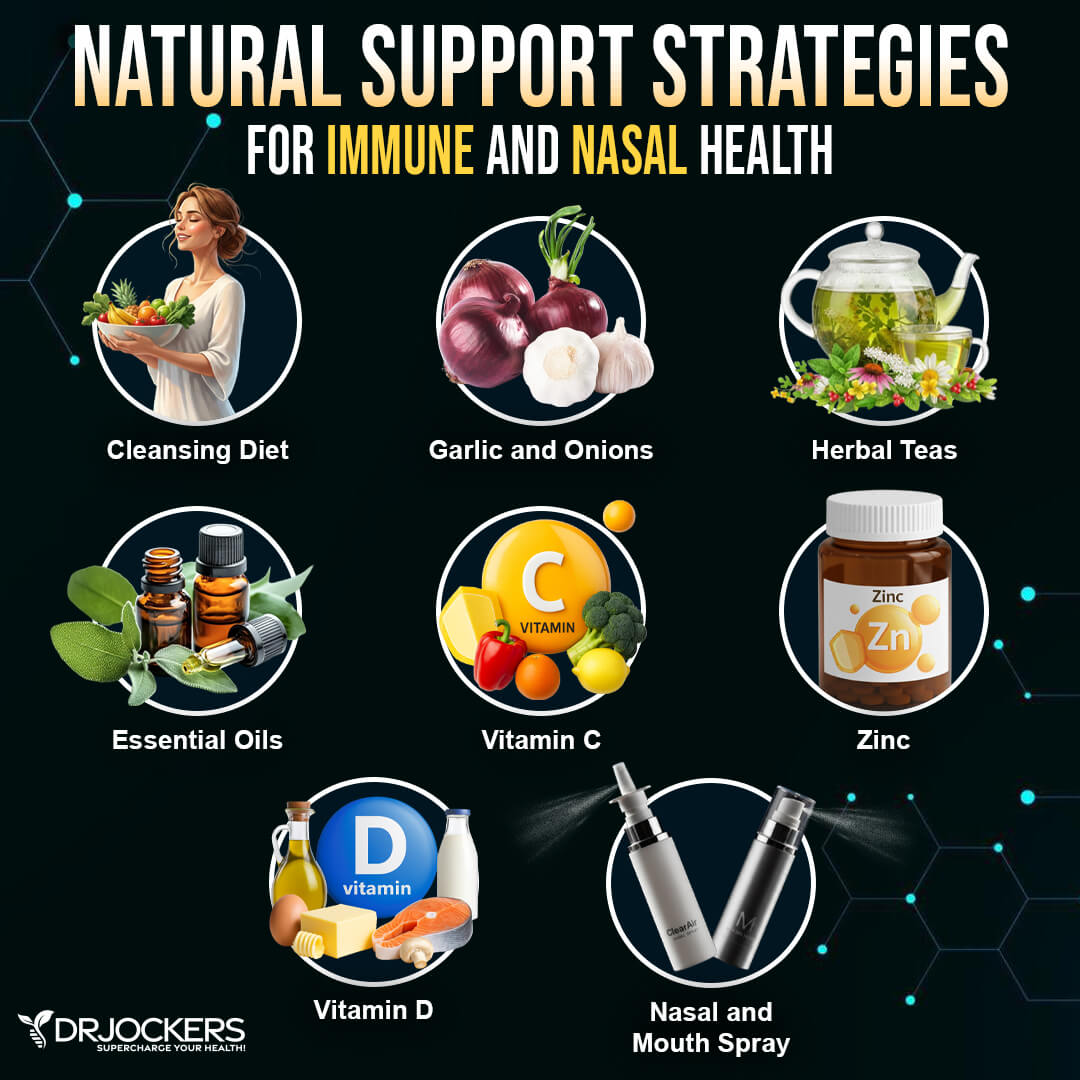
Cleansing Diet
While fighting a sinus infection, it is vital to consume most of your meals in liquid form. This helps maximize the intake of nutrients, electrolytes, and liquids without investing high amounts of energy for digestion. Eating a liquid diet allows the body to focus its energy on healing instead.
Staying hydrated also keeps mucus thin and loose, which can prevent mucus from building up in the sinuses. Drinking liquids can help moisturize your mucus membranes, increasing the movement of the cilia and flushing mucus from your sinuses.
Clean water, broths, smoothies, lemon water, apple cider vinegar water, and low glycemic vegetables are all easily digestible ways to hydrate the body. Bone broths prepared from the bones of pastured chicken or beef are high in the amino acids proline and glycine. These amino acids are great for inhibiting bacterial and viral inflammation.
While eating clean and healing foods is certainly a great strategy to overcome or prevent sinus infections, another powerful strategy is to simply perform a water or broth fast for 1-3 days. Alternatively, intermittent fasting is also great for boosting the immune system.
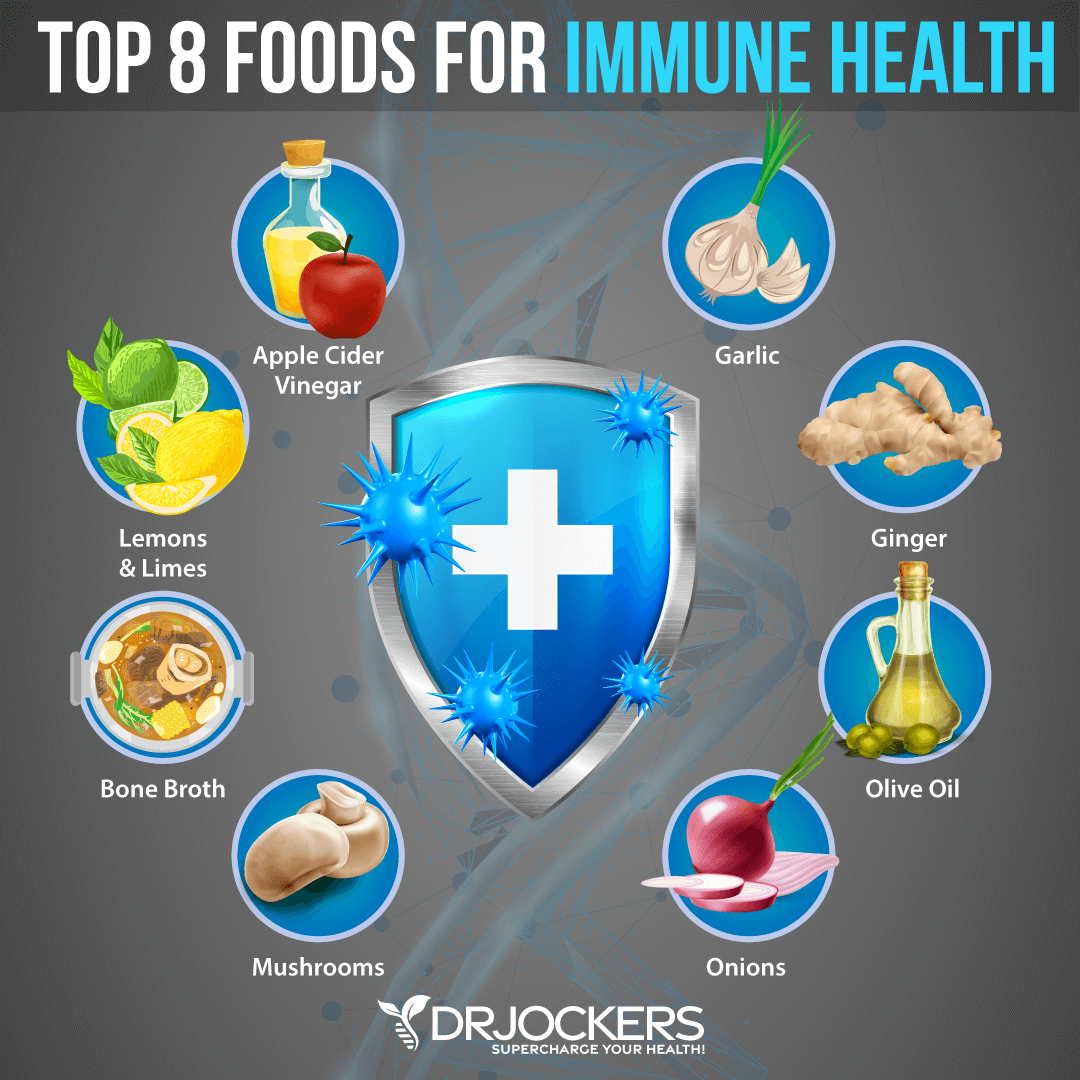
Acupressure Technique
For immediate relief from sinus congestion, you may try a simple acupressure technique. Place and push your tongue against the top of your mouth. Instead of aiming for a specific point, simply push it flat against the roof. Then put your finger between your eyebrows and apply some pressure.
Hold this position for about 20 seconds. Chances are, you will feel your sinuses beginning to drain. Remember, this strategy is only for temporary symptom relief that you can use alongside my other recommendations for immune support.
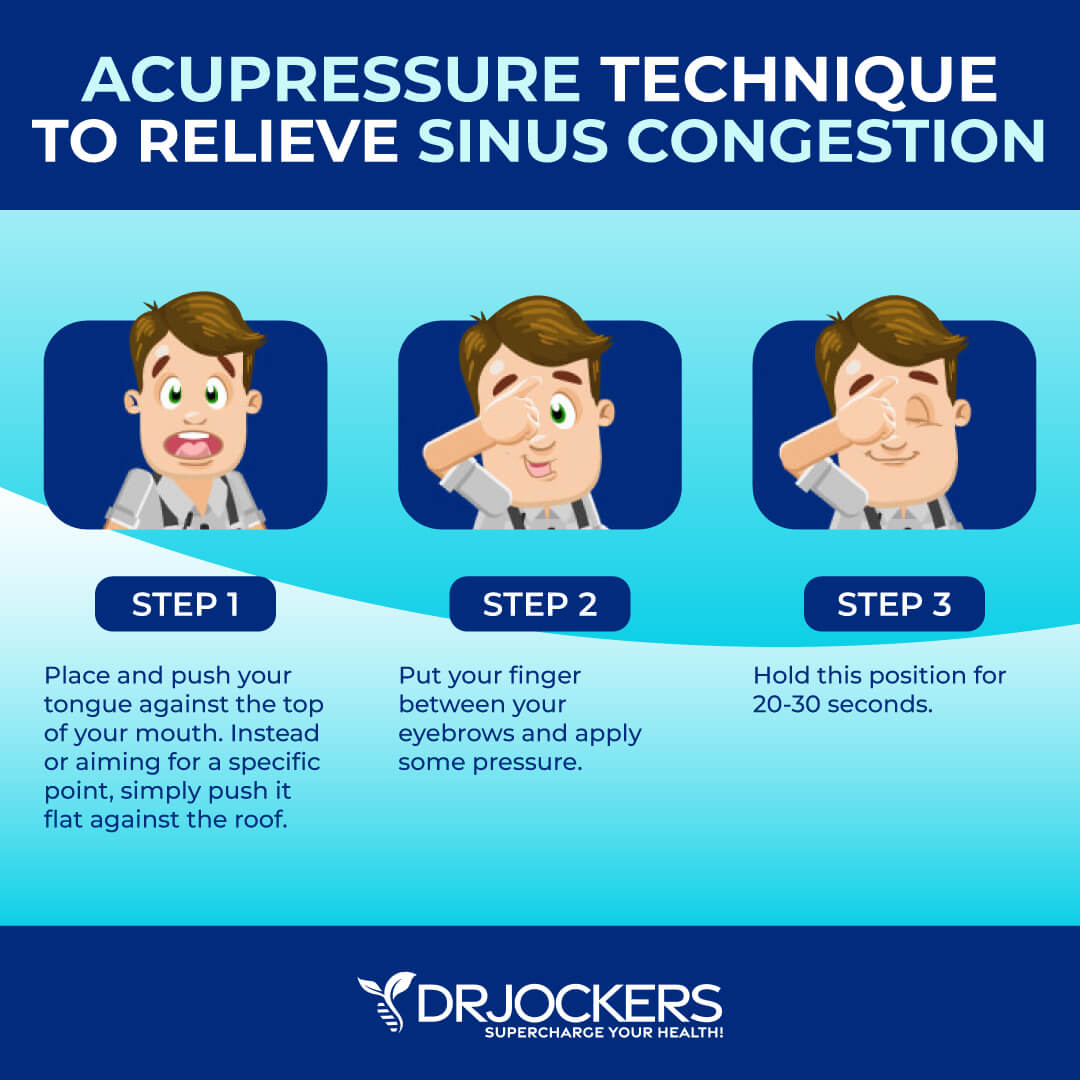
Garlic and Onions
Garlic and onions are two of the best foods for fighting a sinus infection. They are allium vegetables, which are rich in allicin, vitamin C, vitamin B6, selenium, and naturally occurring glutathione. These act as powerful antioxidants in the body to reduce inflammation and boost the immune system.
Garlic has been used for centuries to combat infections due to its broad-spectrum antibacterial effects. The antibacterial activity of garlic is attributed to allicin. Allicin is a sulfur compound that has antioxidant, antibiotic, and antifungal properties (2). Garlic is also rich in selenium, a naturally detoxifying mineral that increases the action of antioxidants.
One of the best ways to use garlic and onions to treat or prevent sinus infections is in a soup or broth. For maximum benefit, use whole garlic cloves rather than processed minced garlic or garlic powder.
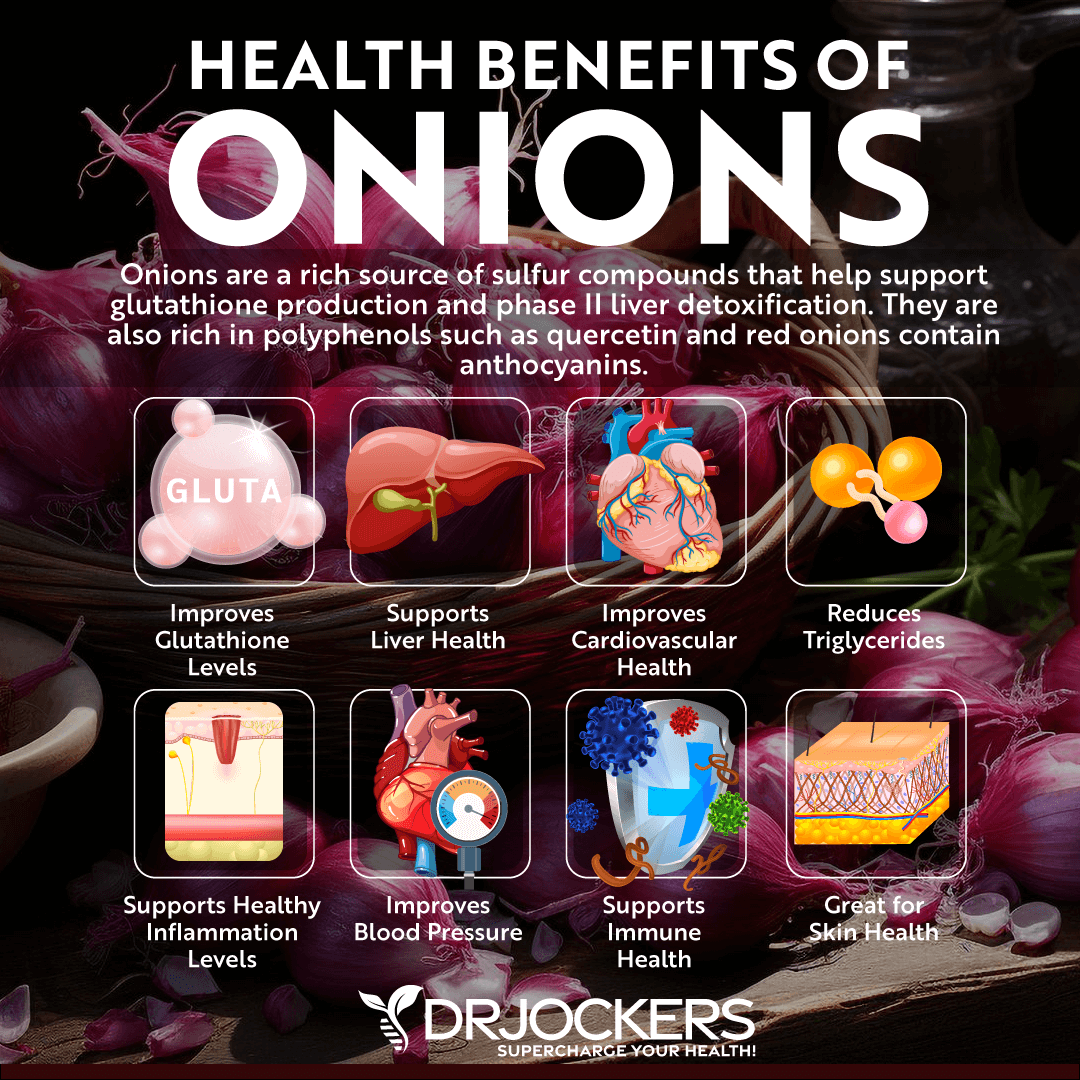
Herbal Teas
Herbal teas provide antioxidant support to fight against infectious organisms. Herbs have the highest Oxygen Radical Absorbance Capacity (ORAC), which is a measure of antioxidant activity. Herbs support the immune system, assist the body in self-regeneration, and fend off infections. Look for herbal teas with ingredients such as licorice, eucalyptus, peppermint, and ginger to help improve your nasal health.
Licorice is an extensively researched medicinal plant with antimicrobial and anti-inflammatory properties. It is an expectorant herb that assists the respiratory system in eliminating excess mucus. Licorice also helps replenish the mucus membranes, clear the bronchial system, and break up congestion.
Eucalyptus has antibacterial and antiviral activities. The powerful vapors of eucalyptus help clear sinus congestion quickly and naturally. Ginger has antibiotic effects, boosts glutathione activity, and helps reduce inflammation.
Finally, another superstar herb for fighting sinus infections is Echinacea. Echinacea has powerful antimicrobial and immune-boosting properties that have made it a well-known traditional remedy for hundreds, if not thousands of years.
One of my favorite teas for healing sinus infections is Breathe Easy. It contains many healing herbs to support healthy sinuses. Remember, it is not FDA approved to prevent, mitigate, treat, or cure sinus infections and should not be interpreted as such.
Vitamin C
Adequate amounts of vitamin C are required for the proper functioning of the immune system. White blood cells, which are the soldiers of the immune system, need very high doses of vitamin C to function effectively. Additionally, glutathione, the master antioxidant in the body, helps recycle vitamin C in the body.
The best food sources of vitamin C are yellow bell peppers, guava, lemons and limes, strawberries, papaya, broccoli, and kale. Grapefruits, oranges, and kiwi fruit also have good amounts of vitamin C.
To increase your vitamin C levels, it is critical to avoid sugar. Sugar competes with Vitamin C for uptake by white blood cells (3). A low carbohydrate diet is best to ensure vitamin C is properly absorbed by white blood cells.
Other ways to increase your vitamin C levels are to take a vitamin C supplement and implement intermittent fasting. Combining intermittent fasting with vitamin C supplementation and lemon water can benefit blood sugar regulation and immunity.
A high-quality vitamin C supplement with bioflavonoids is key to supporting optimal immune health. I recommend 2 grams of Vitamin C every 2 waking hours if you are very immune susceptible to help support your immune system.
As a general maintenance, it is a good idea to take 1 gram of Vitamin C twice a day. We use our Super C formulation here. Remember, it is not FDA approved to prevent, mitigate, treat, or cure sinus infections and should not be interpreted as such.

Zinc
Zinc is a mineral that is essential for immune support. Zinc deficiency is common throughout the world due in part to poor biochemical pathways (such as leaky gut syndrome and poor blood sugar signaling).
There are numerous mechanisms through which zinc supports and boosts the immune system. Zinc produces a protein, called the human cytokine interferon alpha, that inhibits the replication of viruses. Zinc also keeps the Th-1 and Th-2 branches of the immune system in balance.
Another way zinc boosts the immune system is through enzymes, including superoxide dismutase (SOD). Superoxide dismutases are powerful intracellular antioxidant enzymes created by the body. These enzymes help break down potentially harmful oxygen molecules in cells, protect cellular genomics, and help prevent viral infections.
It is a great idea to use a zinc supplement on a regular basis to support your immune system. If I am feeling particularly vulnerable, I will even take 20 mg of zinc every 4 waking hours. For health maintenance, 20-40 mg once a day is the recommended dosage. Remember, it is not FDA approved to prevent, mitigate, treat, or cure sinus infections and should not be interpreted as such.
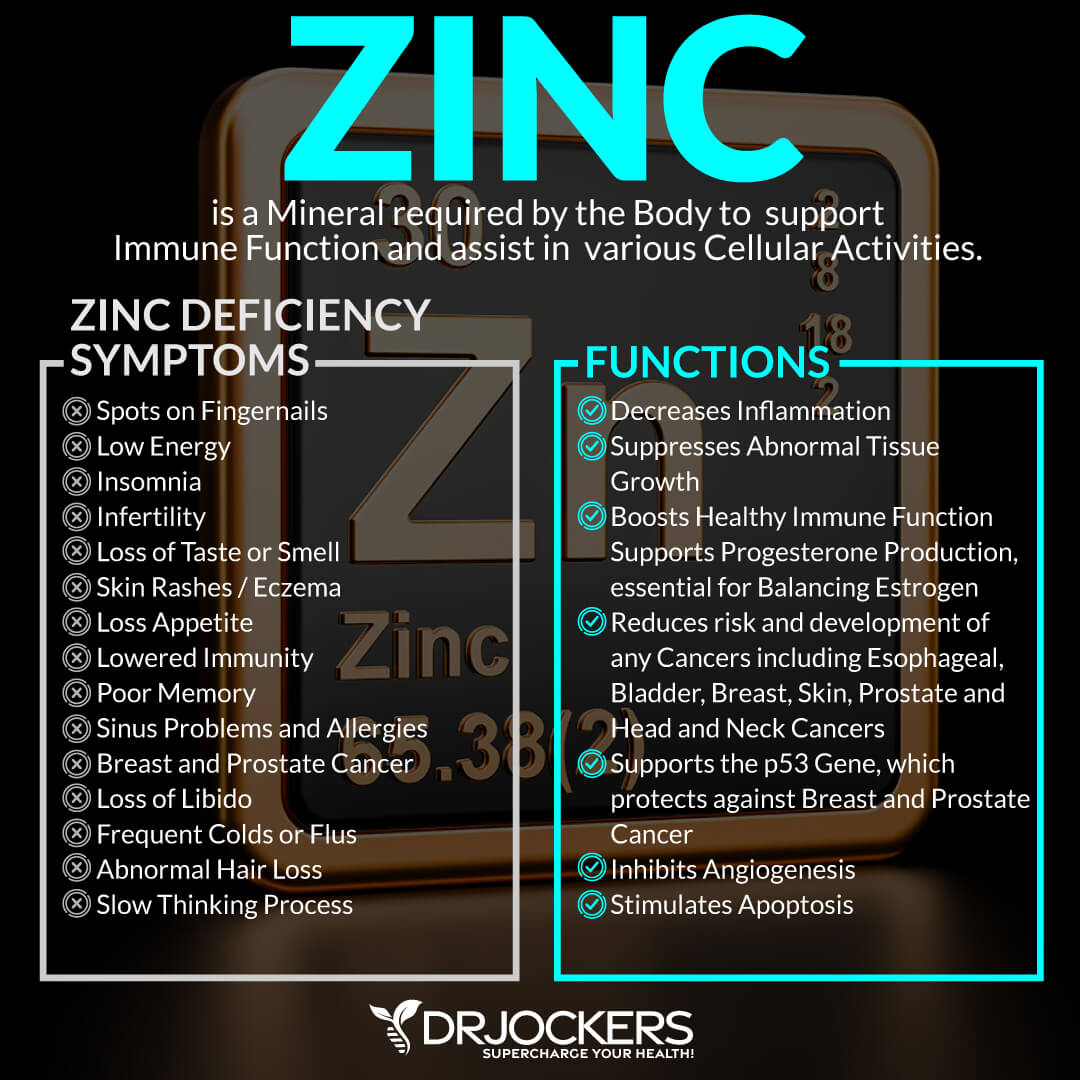
Nasal Spray and Mouth Spray
Nasal and mouth sprays can be great tools to support the immune system. Most sprays you find in the store are filled with synthetic chemicals that only cover up symptoms. Finding a natural spray that features antimicrobial and decongesting compounds will likely be much more helpful.
Grapefruit seed extract is an extremely potent natural remedy that can effectively fight sinus infections. Grapefruit seed extract is made from the pulp and seeds of the grapefruit. It has antioxidant, antibacterial, and antiviral properties. It also has high vitamin C content and other healing nutrients to help the body fight a sinus infection and relieve congestion.
Castor oil has many useful healing properties. It can help with lymphatic circulation, which alleviates blockages and infections. Slippery elm has powerful anti-inflammatory abilities and many other healing properties. Using nasal and mouth sprays with these powerful ingredients can be very helpful for supporting overall sinus health. You can find one of my favorite sprays for this here.
Additionally, colloidal silver can be highly effective as it is a natural anti-microbial that is most effective against bacterial infections, but does help with viral and fungal infections, as well. This silver spray here is a great product to use to support sinus and respiratory health. Remember, it is not FDA approved to prevent, mitigate, treat, or cure sinus infections and should not be interpreted as such.
Improve the Sinus Microbiome
Within your sinuses, you have a microbiome that supports the mucus membrane and immune system. Sinus congestion is a warning sign of an overgrowth of pathogens within the sinus cavity.
To help clear this up, silver can be used, and then I also recommend a bioactive carbon-based sinus spray that helps break down and detoxify bacterial and fungal biofilms. This is why I like Nasomin Nasal Iodine, which is made up of mineral rich bioactive carbons and iodine to help harmonize the respiratory microbiome.
Nasomin Nasal Iodine is a rinse for clearing dust, pollen, and other airborne environmental irritants we’re exposed to every day. It’s your microbiome-friendly ally in caring for the respiratory system. Think of it as strengthening your very first line of defense.
Essential Oils
Essential oils like eucalyptus, tea tree, and clove can help break up mucus and reduce inflammatory responses. Peppermint oil is another essential oil with healing properties that can be particularly helpful for improving sinus and respiratory health.
Peppermint is a superfood herb that contains rosmarinic acid. Rosmarinic acid blocks the production of pro-inflammatory chemicals called leukotrienes and encourages cells to produce key molecules that keep the airways open for easy breathing (4).
You can diffuse, inhale, ingest, or apply essential oils topically. To diffuse essential oils, add 3-4 drops to half a cup of water and use an essential oil diffuser. You can inhale essential oils directly from the bottle or rub a drop between your hands, cover your nose and mouth, and take in a deep breath.
Some essential oils can be ingested; just be sure to read directions for proper amounts. Remember, essential oils are not FDA approved to prevent, mitigate, treat or cure sinus infections and should not be interpreted as such.

Essential Oils and Herbal Sprays
To use essential oils topically, you can apply them neat or diluted, depending on the oil and specific use. Some essential oils need to be combined with carrier oils such as coconut oil. You can apply the combination to the bottom of your feet or your reflex points.
Using essential oils, particularly peppermint and eucalyptus, can be an effective strategy for relieving nasal congestion and improving sinus health. My favorite herbal blend for oral use contains peppermint essential oils and wild-crafted organic herbs that are well studied to be effective for respiratory health, such as eucalyptus leaf, lemon balm leaf, lungwort leaf, and more.
This product is called Lung Health, and it is an easy spray in your mouth. Remember, it is not FDA approved to prevent, mitigate, treat or cure sinus infections and should not be interpreted as such.
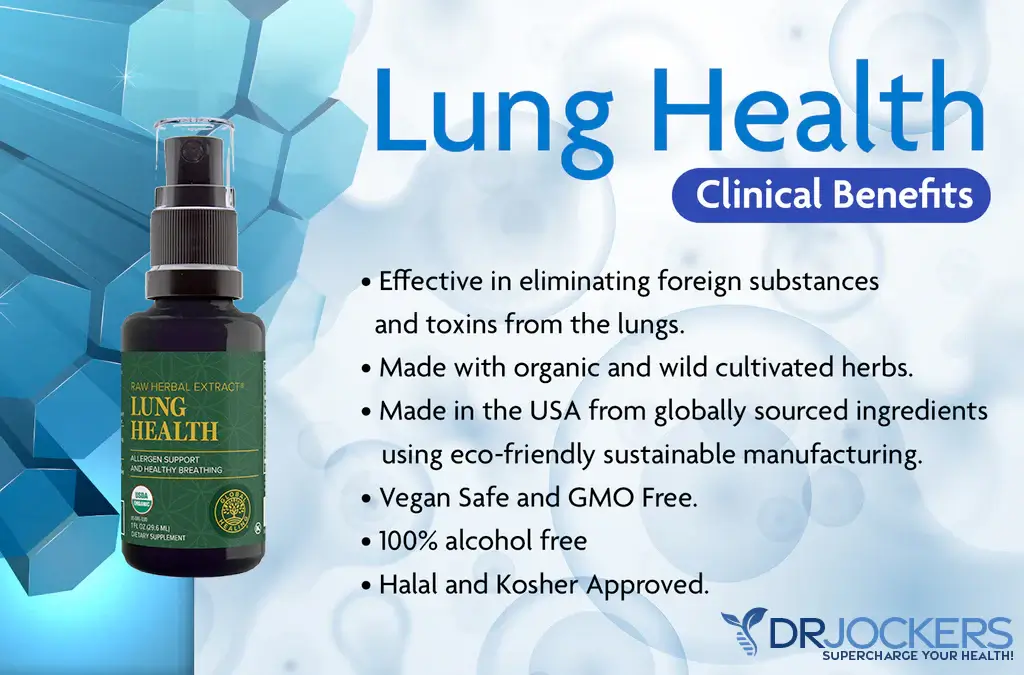
Vitamin D
Vitamin D is required for healthy immune system responses. In fact, it is one of the most powerful nutrients for modulating and coordinating the immune system.
A recent review of studies found that vitamin D deficiency increases the risk of acute airway infections (5). Low vitamin D levels are also associated with the activation of numerous inflammatory processes.
Optimal vitamin D levels are between 50-80 ng/ml, ideally between 60-100 ng/ml. Our bodies can produce vitamin D with exposure to sunlight. Foods rich in vitamin D include organ meats, wild caught salmon and sardines, and eggs from pasture raised chickens.

Many people do not obtain adequate levels of vitamin D from sunlight and foods. To obtain optimal vitamin D levels, supplementation with a high-quality vitamin D supplement can be extremely beneficial. Look for a vitamin D3 supplement with added vitamin K2 as these vitamins work synergistically.
To support the immune system and give it a great ramp up if you are feeling susceptible, you should take 25,000 IU of Vitamin D twice a day for 3 days. Take 5,000 to 10,000 IU daily as a general maintenance dosage
I have my clients use our D3/K2 Power so they get the proper ratio of D3 and K2, as well as magnesium for optimal calcium metabolism in the body. Remember, it is not FDA approved to prevent, mitigate, treat, or cure sinus infections and should not be interpreted as such.
Inflammation Crushing Ebundle
The Inflammation Crushing Ebundle is designed to help you improve your brain, liver, immune system and discover the healing strategies, foods and recipes to burn fat, reduce inflammation and thrive in life!
As a doctor of natural medicine, I have spent the past 20 years studying the best healing strategies and worked with hundreds of coaching clients, helping them overcome chronic health conditions and optimize their overall health.
In our Inflammation Crushing Ebundle, I have put together my very best strategies to reduce inflammation and optimize your healing potential. Take a look at what you will get inside these valuable guides below!
Conclusion
Sinusitis is an inflammation or swelling of the tissue lining the sinuses. When sinuses are blocked, they fill with mucus and an infection can result.
An estimated 35 million Americans suffer from sinus infections each year spending billions of dollars on treatments including over-the counter medications and antibiotics. Most conventional treatments are ineffective or cause other issues. There are numerous natural strategies to support your immune, nasal and sinus health.
It is important to consume a mostly liquid cleansing diet with fasting practices if possible, incorporating garlic and onions and herbal teas. Using essential oils and nasal and mouth sprays can also be very helpful for immune and sinus health. Finally, optimizing your intake of zinc, vitamin C and vitamin D are great for supporting healthy immune, nasal and sinus function.
If you want to work with a functional health coach, I recommend this article with tips on how to find a great coach. Our website offers long-distance functional health coaching programs with our world-class team of health coaches. For further support with your health and other goals, just reach out—our fantastic coaches are here to support your journey.
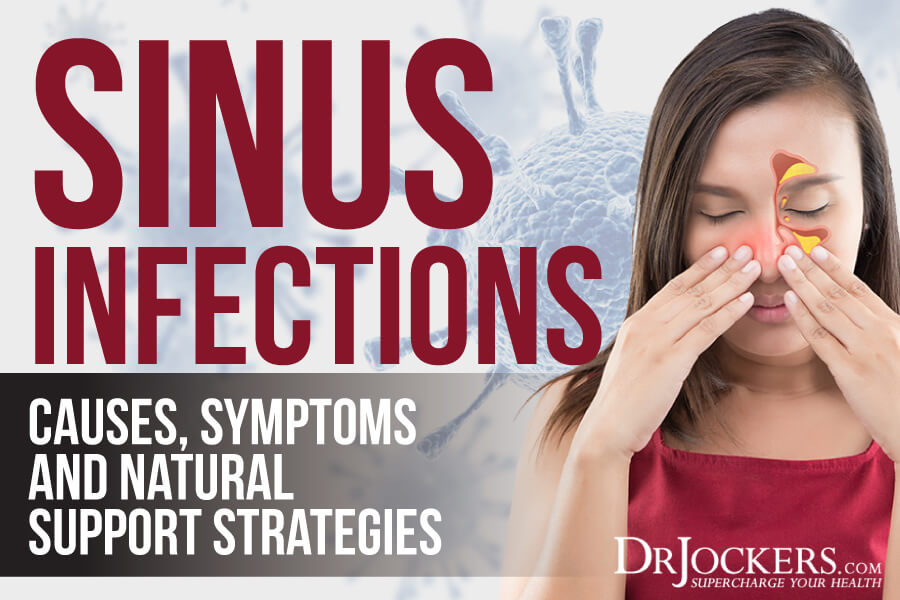
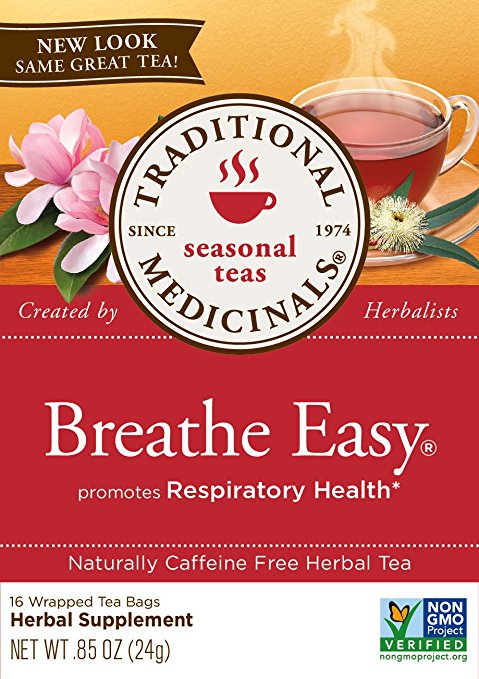
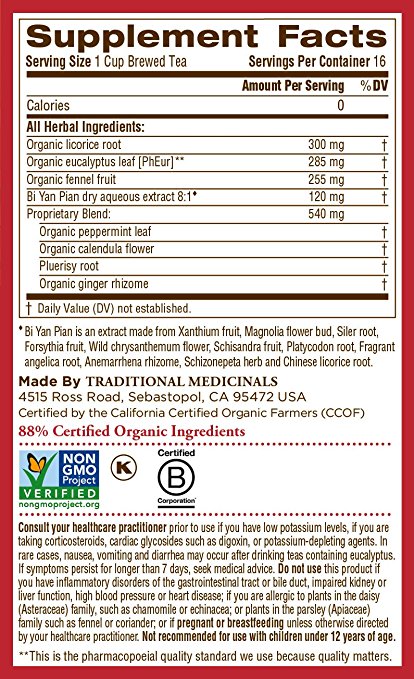







For a sinus infection my doctor gave me
Wise Woman Herbals Phytobiotic Capsule and a nasal spray containing colloidal silver and catsclaw. It cleared it right up.
Thank you for sharing Evelyn!
I am surprised that colloidal silver nasal spray was not specifically mentioned? It will wipe out any sinus infection quickly.
Also…not sure where you get the information on using essential oils( I can only guess), but ingestion is not the majority view accepted in aromatherapy as a therapy. We have zero…..studies indicating the safety and long term effects on the gut microbiome in doing this.
Yes thanks for the comment, we actually did add this line: Additionally, colloidal silver can be highly effective as it is a natural anti-microbial that is most effective against bacterial infections but does help with viral and fungal as well. This nanosilver spray here is a great product to have on hand and use if you are coming down with a sinus infection.
No mention of the fungal connection to chronic sinus infections. Check out the study done by the Mayo Clinic , and published on September 9th, 1999—almost 100% of all chronic sinus infections are caused by mold/fungus/etc. Fungus, yeast, and mold can be connected to many health ‘issues’.
Hey Terri, Thanks for sharing. I would be careful saying 100% but it could definitely be a contributing factor!
About 7 years ago my asthma got so bad and was diagnosed of EMPHYSEMA/COPD which was most likely due to the asthma. I was on double antibiotics and steroids, still didn’t feel any better. It was hell for me due to the severe difficulty breathing. About two years ago my sister in-law told us about Rich Herbs Foundation where she ordered herbs that treated her arthritis. We ordered the COPD herbal treatment after reading positive reviews, i am happy to report this COPD herbal treatment effectively treated my lungs condition. My quality of life has greatly improved and every one of my symptoms including difficulty breathing and wheezing are gone. I will be 52 soon and have never been healthier. Visit their web page ww w. richherbsfoundation. com.
Colloidal silver poisoned me..is not safe for all people. Hair test shows silver and other mineral levels/heavy metals. Ozone may help infections. No gluten/dairy/soy/sugar/GMO/food with a label..taking vitamins/good oils/minerals..probiotic…LDN..detoxing may help.
Hello,
How much colloidal sliver would you recommend for a 9 year old kid that may have a sinus infection?
Regards,
Savera